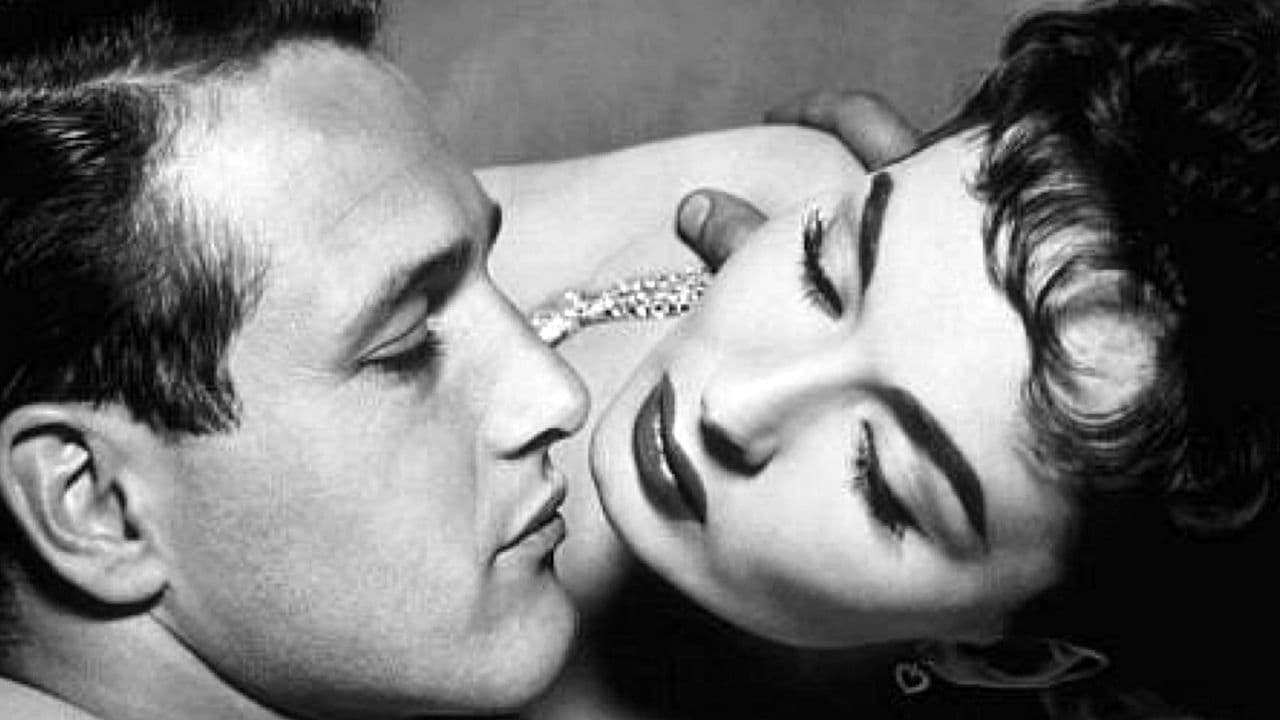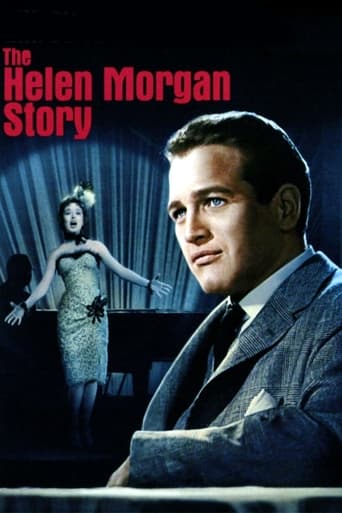

Mostly fictional, miscast biographical hogwash of hard luck songtress Morgan. Ann Blyth, in her last theatrical feature, was the wrong actress for the title role, many were considered she was probably the least suitable, so the film starts off with a major flaw from the get go. Judy Garland whose style especially when young was compared to Morgan's would have been ideal. Another shortcoming is that although Blyth was a singer whose voice was relatively close to the real Helen Morgan's she is dubbed by Gogi Grant, also a fine singer but completely different from Morgan in sound and technique. If they were going to dub her why not use Helen Morgan's voice? Curtiz direction is unremarkable here, a few of his more customary florid touches would have helped greatly. Paul Newman who was just starting out when this was made is adequate but missing that loutish air that is needed for the reptile he is playing either Kirk Douglas or Robert Ryan would have been more suitable. The real Morgan story is a compelling one so this comes off as a wasted opportunity.
... View MoreThe 1950s gave us such great musical biographies and "The Helen Morgan Story" is another one of them.Ann Blyth is fabulous as she conveys the tormented life of this great performer. She made a success of herself in show business but threw it all away to alcohol and the inability to choose the right man for herself. Blyth was fabulous in the lead. It's a part that will remind you of Doris Day's Ruth Etting in "Love Me or Leave Me," or Susan Hayward in "I'll Cry Tomorrow."With those blue eyes, Paul Newman was phenomenal here. He was born to play the part of Larry, the man who loved Morgan deeply, but he himself said that he came first. Her other lover, played by Richard Carlson, who gave a very weak performance in the role.The songs are belted out and often the voice sounded somewhat like Lena Horne-Horne made many of the Morgan songs quite popular as well.Alan King appears in a straight dramatic role as Larry's associate. Cara Williams, who would be nominated for best supporting actress the following year in "The Defiant Ones," was good as his girlfriend and there is a stopping scene by Virginia Vincent, who commits suicide. Vincent was often seen on television's "The Untouchables" in the '50s as well.The movie does a great job of depicting Morgan's torment and success. Many of the dames of the period got themselves involved with gangsters and liquor and Morgan was no exception.
... View MoreSince I was born decades after this film was made and this film was made about the period of Helen Morgan's life decades before 1957, I wasn't sure I would be able to appreciate it as much as perhaps it deserved to be. Actually I found it to be somewhat timeless in its depiction of the eternal quest for fame and fortune and the pitfalls that occur along the way. Even in today's headlines we see talented performers who achieve fame and fortune only to stumble due to relationship difficulties, substance abuse and shady characters in their entourage. Although I am not familiar with the real Helen Morgan, Ann Blyth does a credible job in portraying how stardom doesn't always lead to happiness and Paul Newman is very good as an opportunist with a conscience.
... View MoreIt's all there, professional hardware and expertise, up on thecinemascope screen - but for two oddities: the lead roles.Newman and Blyth look good (she even looks like Debbie's oldersister as seen in Singin In the Rain) and Newman at 30 is about athandsome as the 50s screen ever was........but they are both lightfor grim roles. Doris Day pulled it off in Love Me Or Leave Me andCagney was the full gargoyle as Marty the Gimp which is probablywhat the Larry role Needed from Newman...but he was really toopretty. Looking alot like how Some Like It Hot turned out, it lookslike it wants to be a comedy....which it probably now almost is. Anne Blyth is Minnie Mouse, I think and that is what doesn't help.And where's Joan Blondell when WB need her......and I bet RichardCarlson kissed Michael Curtiz feet in gratitude for the high profilerole here after all those D grade schlockers he had prior. He evenhad his name in lights in the fabulous credits. This is alot like the1933 CASE OF THE LUCKY LEGS without the laughs. This film isso well made, but it doesn't work, whereas other bios from thesame period are dynamic. Like for Doris Day and Susan Hayward.
... View More